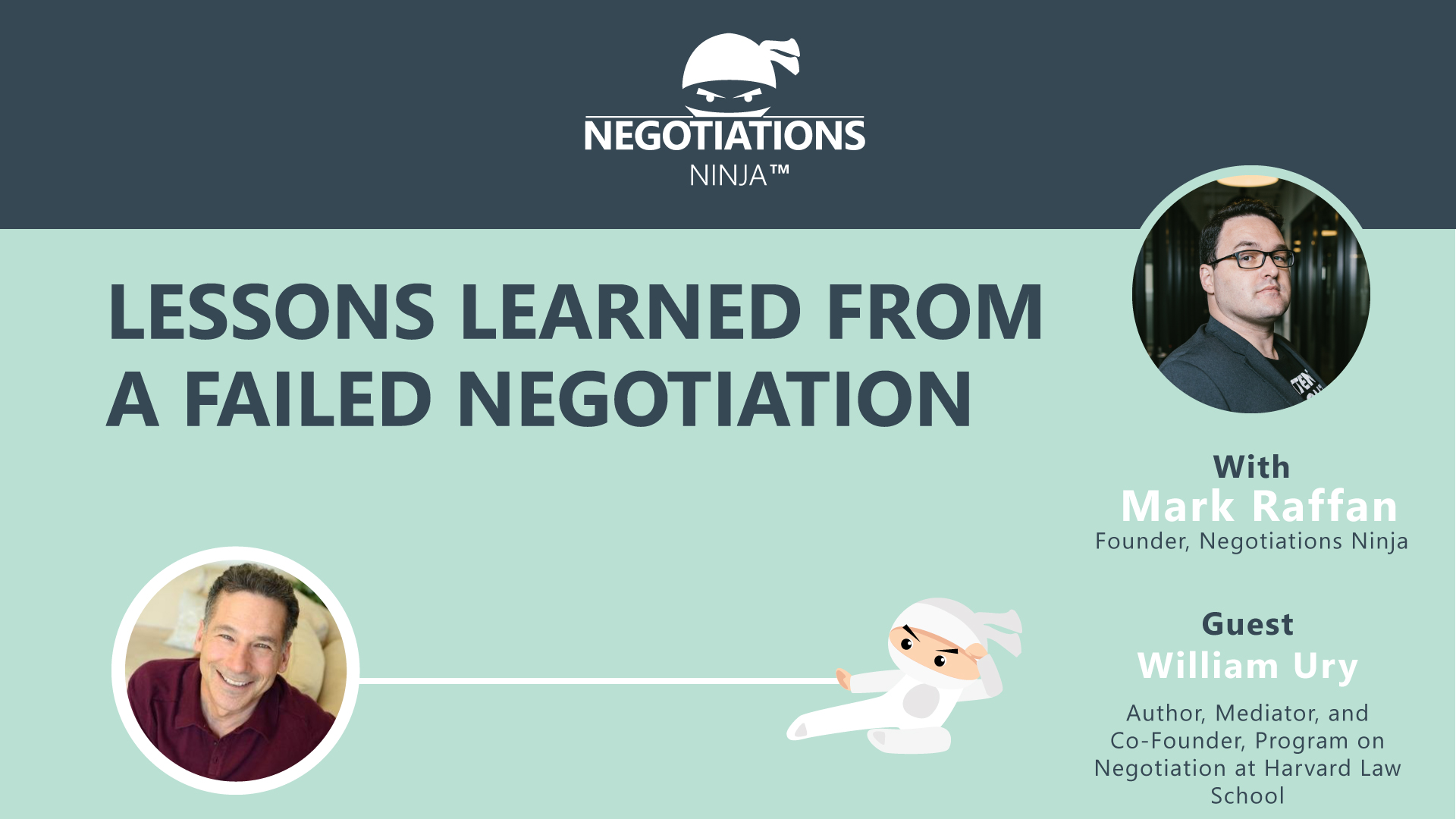William Ury is one of the most well-known—and experienced—names in the field of mediation and negotiation. He’s worked around the globe in every circumstance imaginable. In this episode of Negotiations Ninja, we talk about what he’s learned throughout his storied career, including what he’s learned from the failures.
Outline of This Episode
- [2:43] Learn more about William and his career
- [5:11] The negotiation that impacted William’s life
- [8:22] Who influenced William’s career
- [11:17] What William learned from a failed negotiation
- [22:23] How artificial intelligence is impacting negotiation
- [26:28] The art of what’s possible
- [31:24] What’s next for William
The negotiation that impacted William’s life
William was born in the United States but spent half of his childhood in Europe. Europe was recovering from World War I and II. Many historians believe that World War I was a preventable war. And the way peace was negotiated in Versailles in 1919 sowed the seeds for World War II. Tens of millions of people died.
William felt the impact as a child. Wasn’t there a better way? People were terrified that World War III was coming. “Wasn’t there a better way?” became the guiding question of his life. It’s why he went into anthropology and the field of negotiation. He wanted to find more constructive ways to deal with conflict.
What William learned from failure
William’s first mediation started with a spectacular failure. He was given an opportunity by a law professor, Steven Goldberg, to work on a mediation with a coal mine in Kentucky. They were worried it would trigger a nationwide strike.
The management and the Union wouldn’t even sit in the same room together. After six weeks of mediation, they signed an agreement to change the way they dealt with disputes. Everyone was elated. But there was one minor issue: The miners had to approve it. The miners voted to reject the agreement their leadership had negotiated. Why?
Because they didn’t trust their management, it felt like a trick. So they were back to square one. William learned that the people who aren’t at the table are just as important as those at the table. You have to think about who the negotiators represent. You have to zoom out to see the larger picture if you have a hope to reach a sustainable agreement. So what did he do?
William found a way to build trust
William moved down to Kentucky to be at the coal mine for the summer. He tried to engage with the coal miners as they went to or came out of the minutes, but they didn’t trust him. So he took what he thought was the logical next step: He went down into the coal mines with them.
You could cut the dust with a knife. You had to wear an oxygen mask. But that’s where miners sat and talked with him while chewing tobacco.
After a few times down there, he was jumped by four miners. They pulled out a knife, pulled down his pants, and initiated him by “Hairing him.” Suddenly, he was one of them. William gradually built their trust and persuaded them to take their grievances and talk them out. The strikes came to an end.
William learned that you had to build trust. You have to move to where your counterparty is—sometimes physically—to dissolve the walls of distrust.
William shares more of what he’s learned from decades as a prolific mediator in this episode. You can’t miss it.
Resources & People Mentioned
Connect with William Ury
Connect With Mark
- Follow Negotiations Ninja on Twitter: @NegotiationPod
- Connect with Mark on LinkedIn
- Follow Negotiations Ninja on LinkedIn
- Connect on Instagram: @NegotiationPod




